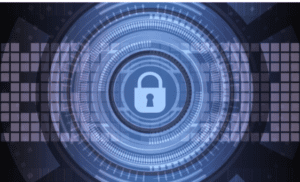C3PAOs vs. Standard Assessors: Breaking Down the Differences
In the spheres of military spending, the United States towers over all other nations.
The U.S. military spent an astounding 916 billion dollars in the 2023 fiscal year. For perspective, that was over 40% of the total global military spending that year ($2.44 trillion) and more than the combined expenditure by its two archrival militaries – China (296 billion) and Russia (110 billion).
With every military budget comes an opportunity to tap into lucrative contracts. However, not every organization that bids for the Department of Defense (DoD) tenders succeeds. While the agency may disqualify you for various reasons, a significant percentage of ineligible bidders usually constitute entities that fall short of the DoD’s CMMC compliance requirements.
Conducting an in-depth evaluation of your cybersecurity posture is the surest way to assess your CMMC compliance status. Licensed C3PAOs typically undertake such audits, although you may also liaise with standard assessors.
But as you shall find, there’s a difference between choosing an accredited C3PAO and a regular CMMC evaluator.
What Is CMMC?

CMMC is a common cybersecurity acronym for the Cybersecurity Maturity Model Certification, a Department of Defense program developed to protect the defense industrial base (DIB) from emerging cyber threats.
The CMMC serves two fundamental goals – (i) providing the framework against which defense contractors can evaluate their cybersecurity maturity and (ii) outlining the certification standards for aspiring assessors. The program aligns with various other cybersecurity protocols, including the National Institute of Standards and Technology (NIST). It specifically borrows from NIST 800-171, a framework developed to safeguard controlled unclassified information (CUI) and federal contract information (FCI) across the networks of third-party federal contractors.
The CMMC program has undergone drastic reforms since its establishment in 2020.
On October 16, 2024, the Department of Defense unveiled the Final Rule for the latest CMMC iteration, which came with a raft of adjustments. CMMC compliance will now be mandatory for all defense contractors, including those already compliant with NIST 800-171.
While it’s relatively easy to determine if your company deals in CUI and FCI, understanding your CMMC maturity level typically requires professional assistance. That’s where C3PAOs come in.
Who Are C3PAOs?
CMMC Third-Party Assessor Organizations, more commonly abbreviated as C3PAOs, are entities authorized by the CMMC Accreditation Body (CMMC AB or Cyber AB) to conduct audits on behalf of Organizations Seeking Assessment (OSAs). OSAs are basically companies or organizations that enlist C3PAO services intending to understand their CMMC maturity levels.
C3PAO evaluations serve one critical end – ensuring that the assessed OSA fully complies with the DoD’s stringent cybersecurity requirements for CUI and FCI. This is necessary to cushion defense industrial bases from financial losses and reputational damage caused by major cybersecurity breaches.
Assessment reports by C3PAOs not only help the DoD secure its supply chain from threats. It also allows OSAs to uncover potential cybersecurity loopholes and seal those gaps before full-scale breaches occur.
By taking a proactive approach to cyber monitoring, organizations can bolster their cybersecurity posture and maintain a critical edge when bidding for lucrative defense contracts.

Fundamental Differences Between C3PAOs and Standard Assessors
Third-party assessor organizations differ fundamentally from standard assessors in their accreditation body.
As mentioned, all C3PAOs are authorized by the CMMC AB. Obtaining CMMC AB accreditation comes with a valid seal of approval, lending credence to a C3PAO’s legitimacy.
C3PAOs also differ from standard assessors in the types of CMMC compliance levels they may audit. Note that there are three CMMC maturity levels, depending on the type of CUI and FCI data your organization handles. They include;
1. Level 1
CMMC Level 1 requires defense contractors to comply with 15 fundamental cybersecurity practices. This maturity level allows organizations to self-assess rather than engage third-party auditors.
The implication is that you may enlist the expertise of regular CMMC assessors or opt for a C3PAO, although the latter isn’t mandatory.
Another significant distinction between Level 1 and other levels is the inability to implement Plans of Action & Milestones (POA&Ms). Instead, the scores obtained from self-assessments must be reported directly in the Supplier Performance Risk System (SPRS).
2. Level 2
If your organization handles critical CUI and FCI that require CMMC Level 2 compliance, then all maturity assessments must be undertaken by a licensed third-party assessor organization.
Level 2 aligns with NIST SP 800-171 Rev 2 and contains 110 security protocols that defense contractors must adhere to. Any self-assessment performed under this maturity level will be deemed invalid. That includes audits undertaken internally or via standard assessors.
A C3PAO will evaluate how your existing cybersecurity architecture aligns with the CMMC requirements and report the scores on the SPRS. Unlike in Level 1, where CMMC compliance audits must return a verdict of 100% conformity, Level 2 allows partially compliant defense contractors to remain conditionally operational. The tested organization can invoke POA&Ms, allowing them to remedy any inadequacies within 180 days after the first audit.
3. Level 3
Defense contractors subject to the CMMC Level 3 must adhere to all NIST 800-171 Rev 2 protocols in addition to 24 controls from NIST SP 800-172, the latter of which are presently under review.
Neither C3PAOs nor standard assessors are authorized to conduct Level 3 compliance assessments. Instead, the auditing role rests squarely with the Defense Industrial Base Cybersecurity Assessment Center (DIBCAC).
However, defense contractors must obtain full Level 2 certifications to be eligible for Level 3 assessments. That essentially means C3PAOs play a critical, albeit indirect, role in facilitating CMMC Level 3 compliance.

Other Distinctions Between C3PAOs and Standard Assessors
1. Independence and Neutrality
CMMC third-party assessor organizations are answerable to the CMMC AB rather than the OSAs. Therefore, they’re more inclined to provide independent and neutral assessments than standard assessors.
C3PAOs recognize that falling short of the CMMC compliance requirements can have far-reaching implications for the defense supply chain. As such, they ensure every audited organization satisfies the maturity standards required for Level 2 certification.
A C3PAO also understands that each CMMC assessment puts its reputation under scrutiny. So, any slip-up can be costly.
2. Training and Experience
While some research might help you find a standard assessor that provides good value for your time and money, it’s a gamble you don’t want to take. The reality is that most standard assessors lack the experience levels required to undertake robust CMMC compliance audits. Your best bet is to insist on an accredited C3PAO.
C3PAOs receive in-depth training on essential CMMC maturity standards and procedures, focusing on equipping them with the knowledge required to safeguard FCI and CUI across the defense supply chain.
To become a C3PAO, organizations must apply directly to the CMMC Accreditation Body. The Cyber AB reviews each application to determine if it meets the minimum requirements.
Notably, C3PAO applicants must possess advanced cybersecurity expertise and maintain a team of certified assessors. They must also complete an assessment to fulfill CMMC Level 3 requirements. Upon satisfying these stringent measures, a C3PAO applicant receives CMMC AB certification.
3. Specialization and Expertise
Regular assessors may be knowledgeable about cybersecurity protocols in general. However, CMMC compliance assessments are best performed by specialized gurus like C3PAOs.
Not only do C3PAOs undergo broad-spectrum cybersecurity training. They’re particularly equipped with the knowledge required to undertake complex CMMC audits. This allows them to implement a tailored approach when evaluating CMMC maturity protocols and policies.
Besides, the CMMC AB reviews C3PAOs periodically to ensure they understand current CMMC frameworks and comply with other critical cybersecurity standards.
While some regular assessors also undergo periodic reviews, the oversight bodies might not be as stringent on DoD-related cybersecurity requirements as the CMMC AB is. As such, their assessment reports may fall short of the expected CMMC standards and cause you to incur double audit costs.
Examples of alternative CMMC AB accreditation bodies include NIST 800-171, ISO 27001, and SOC 2.
4. Availability vis-à-vis Affordability
Affordability is one of the compelling arguments in favor of enlisting standard assessors.
Conservative estimates put the number of fully authorized C3PAOs at 60, which pales compared to the over 100,000 DIB companies in operation. While the actual number of standard assessors is unknown, the fact that these entities don’t require Cyber AB accreditation likely puts them in the thousands.
Fortunately, all approved C3PAOs are readily available on the Cyber AB website.
Besides, not all standard assessors charge competitive fees. It doesn’t help that many of these companies are brokers who subcontract cybersecurity audits to other firms.
Working with middlemen is the last thing you want when seeking to get your organization audited for CMMC compliance. Therefore, it pays to stick to C3PAOs.
5. Transparency and Sustainability
Contracts with standard assessors typically end when these companies fulfill their core obligation of assessing your CMMC compliance.
A regular auditor may withhold critical information, including future threats to your cybersecurity infrastructure. Instead of forewarning your IT teams, the assessor might wait patiently for problems to occur so you can enlist their services again.
Well, that’s a stark contrast from CMMC third-party assessor organizations.
C3PAOs aren’t purely motivated by the bottom line. Instead, they adopt a holistic approach to assessment, aiming to establish your CMMC maturity levels and uncover potential areas for improvement.
A CMMC C3PAO will not just score your organization’s cybersecurity framework against the CMMC’s requirements. Whether you’re fully compliant or not, the assessor will also provide expert guidance on identifying and proactively addressing vulnerabilities.

Take a Leap Forward With Professional Assistance
When scheduling a routine CMMC audit in your organization, you could be spoilt between engaging a C3PAO or standard assessor.
But while regular evaluators may be relatively affordable, it’s better to insist on accredited auditors. Authorized C3PAOs leverage their wealth of experience to provide comprehensive audits, allowing your organization to achieve full CMMC compliance.
For over five years, Cybersec Investments has emerged as a reliable partner for DIBs seeking to assess their CMMC maturity levels. We’re a licensed C3PAO specializing in CMMC Level 2 certification assessments. Our expert assessors are equipped with industry-relevant knowledge, which will be instrumental in helping you uncover and seal gaps in your current cybersecurity architecture.
Contact Cybersec Investments today and accelerate your road to full CMMC compliance.

Recent Comments